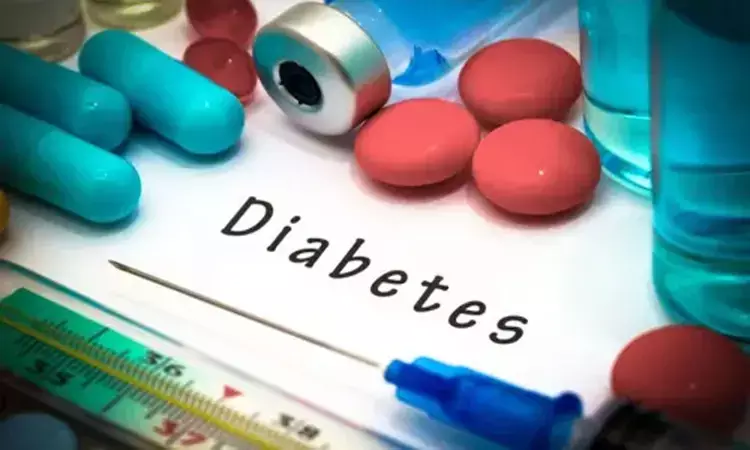- Home
- Medical news & Guidelines
- Anesthesiology
- Cardiology and CTVS
- Critical Care
- Dentistry
- Dermatology
- Diabetes and Endocrinology
- ENT
- Gastroenterology
- Medicine
- Nephrology
- Neurology
- Obstretics-Gynaecology
- Oncology
- Ophthalmology
- Orthopaedics
- Pediatrics-Neonatology
- Psychiatry
- Pulmonology
- Radiology
- Surgery
- Urology
- Laboratory Medicine
- Diet
- Nursing
- Paramedical
- Physiotherapy
- Health news
- Fact Check
- Bone Health Fact Check
- Brain Health Fact Check
- Cancer Related Fact Check
- Child Care Fact Check
- Dental and oral health fact check
- Diabetes and metabolic health fact check
- Diet and Nutrition Fact Check
- Eye and ENT Care Fact Check
- Fitness fact check
- Gut health fact check
- Heart health fact check
- Kidney health fact check
- Medical education fact check
- Men's health fact check
- Respiratory fact check
- Skin and hair care fact check
- Vaccine and Immunization fact check
- Women's health fact check
- AYUSH
- State News
- Andaman and Nicobar Islands
- Andhra Pradesh
- Arunachal Pradesh
- Assam
- Bihar
- Chandigarh
- Chattisgarh
- Dadra and Nagar Haveli
- Daman and Diu
- Delhi
- Goa
- Gujarat
- Haryana
- Himachal Pradesh
- Jammu & Kashmir
- Jharkhand
- Karnataka
- Kerala
- Ladakh
- Lakshadweep
- Madhya Pradesh
- Maharashtra
- Manipur
- Meghalaya
- Mizoram
- Nagaland
- Odisha
- Puducherry
- Punjab
- Rajasthan
- Sikkim
- Tamil Nadu
- Telangana
- Tripura
- Uttar Pradesh
- Uttrakhand
- West Bengal
- Medical Education
- Industry
Imeglimin, a potential new treatment option as add-on to insulin therapy in type 2 diabetes: TIMES 3 trial

France: Recent data from the TIMES-3 trial showed that imeglimin when used as an add-on agent to insulin was effective in reducing blood sugar levels in type 2 diabetes (T2D) patients and had a similar safety profile as placebo. Also, imeglimin's efficacy on top of insulin was sustained for 52 weeks. The study was published in the journal Diabetes, Obesity and Metabolism on 04 January 2022.
The study was conducted by Pascale Fouqueray, Pascale FOUQUERAY, Poxel SA, Lyon, France, and colleagues with an objective to evaluate the efficacy and safety of imeglimin for up to 52 weeks as combination therapy with insulin in Japanese patients with type 2 diabetes in a double-blind, randomized, parallel-group phase 3 trial occurred in 35 sites in Japan.
Patients aged ≥ 20 years with type 2 diabetes and inadequate glycemic control with insulin were included. They were randomized in the ratio of 1:1 to receive either imeglimin (1000mg BID; n=108) or matched placebo (n=107), in combination with insulin for 16 weeks. In a subsequent 36-week, open-label extension period, all patients received imeglimin 1000mg BID.
The change in mean HbA1c from baseline to week 16 was the primary endpoint.
Based on the study, the researchers found the following:
- Compared with placebo, the adjusted mean difference in change from baseline HbA1c at week 16 was -0.60%. This decrease was sustained up to 52 weeks with a mean decrease of -0.64 % versus baseline.
- The incidence of patients experiencing adverse events and serious adverse events was similar in both treatment groups.
- The number of patients experiencing hypoglycemia was similar between treatment groups.
- In patients receiving imeglimin, all hypoglycemic events were mild in severity; no episodes required assistance.
"Our findings showed that in Japanese patients with insufficiently controlled type 2 diabetes by insulin, imeglimin significantly improved HbA1c and had a similar safety profile to placebo," wrote the authors. "The efficacy of imeglimin on top of insulin was sustained for 52 weeks. Imeglimin represents a potential new treatment option for this population as an add-on to insulin therapy.
Reference:
Reilhac, C., Dubourg, J., Thang, C., Grouin, J.-M., Fouqueray, P. and Watada, H. (2022), Efficacy and safety of imeglimin add-on to insulin monotherapy in Japanese patients with type 2 diabetes (TIMES 3): A randomized, double-blind, placebo-controlled phase 3 trial with a 36-week open-label extension period. Diabetes Obes Metab. Accepted Author Manuscript. https://doi.org/10.1111/dom.14642
Dr Kamal Kant Kohli-MBBS, DTCD- a chest specialist with more than 30 years of practice and a flair for writing clinical articles, Dr Kamal Kant Kohli joined Medical Dialogues as a Chief Editor of Medical News. Besides writing articles, as an editor, he proofreads and verifies all the medical content published on Medical Dialogues including those coming from journals, studies,medical conferences,guidelines etc. Email: drkohli@medicaldialogues.in. Contact no. 011-43720751


